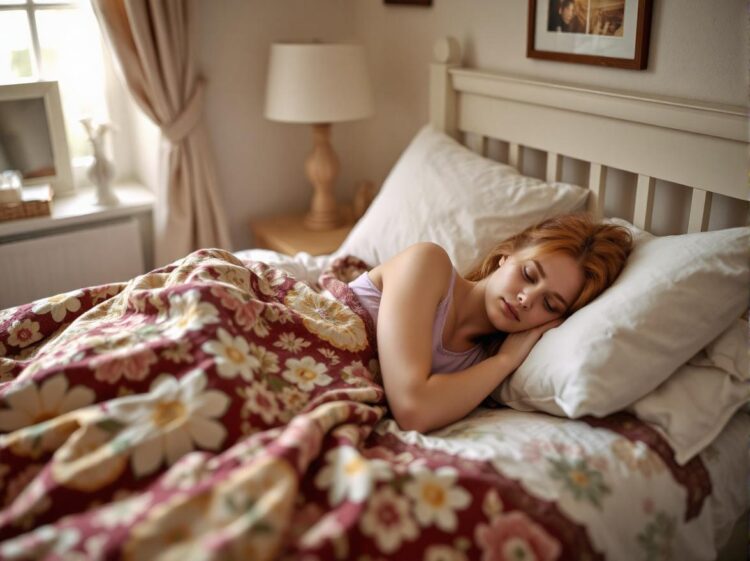Sleep is one of the most essential aspects of health, yet it is often neglected or misunderstood. Many of us are familiar with the importance of sleep for physical recovery, mental clarity, and overall well-being, but the specific needs for sleep vary, especially for women. Understanding how much sleep women really need for optimal health is crucial for enhancing longevity, managing stress, and boosting overall vitality.
The Connection Between Sleep and Women’s Health
Sleep is directly linked to every part of our health. When we sleep, our bodies undergo repair processes, consolidate memories, and regulate hormones. For women, sleep has even deeper significance, influencing hormonal balance, reproductive health, mental well-being, and immunity.
Women experience hormonal fluctuations at various life stages, such as puberty, pregnancy, and menopause, which can significantly impact sleep patterns. For instance, pregnancy may lead to discomfort and frequent waking, while menopause often brings hot flashes and insomnia. The impact of these life changes makes it even more important to prioritize quality sleep.
How Much Sleep Do Women Really Need?
The National Sleep Foundation recommends that adults aim for seven to nine hours of sleep each night. This range is considered optimal for most women to experience restorative sleep that helps with physical and mental recovery. However, sleep needs vary according to age, lifestyle, and personal health conditions.
Age and Sleep Requirements
As women age, their sleep patterns may change. Here’s a breakdown of recommended sleep for women at different life stages:
- Young Women (18-25 years): Women in this age group typically need about 7-9 hours of sleep each night. Young women may have demanding academic or career schedules, which can disrupt sleep, but maintaining regular sleep habits is crucial for overall health.
- Women in Their 30s and 40s: This phase is marked by a balancing act of career, family, and health, which may leave women more susceptible to sleep disturbances. Sleep deprivation can exacerbate stress and make it difficult to maintain a healthy work-life balance. The recommended sleep duration for women in this age range is still 7-9 hours.
- Perimenopause and Menopause (45+ years): The sleep needs of women going through perimenopause or menopause may remain the same (7-9 hours), but hormonal changes can interfere with sleep quality. Symptoms like hot flashes, night sweats, and anxiety can make it harder for women to fall and stay asleep. As a result, women in this phase may find themselves waking up multiple times throughout the night.

Sleep and Health Risks in Women
When women don’t get enough sleep, their health can suffer in several ways:
- Hormonal Imbalance: Sleep is a key regulator of hormones. Chronic sleep deprivation can lead to hormonal imbalances, which in turn can affect menstruation, fertility, and even increase the risk of conditions like polycystic ovary syndrome (PCOS). Poor sleep can also affect insulin sensitivity, increasing the risk of type 2 diabetes.
- Mental Health: Women are more prone to anxiety and depression compared to men, and sleep deprivation exacerbates these conditions. Chronic insomnia can contribute to feelings of irritability, mood swings, and increased stress. In fact, poor sleep is often a trigger for mood disorders.
- Heart Health: Sleep plays a significant role in heart health. Women who don’t get enough sleep are at greater risk of developing cardiovascular diseases, including high blood pressure, heart disease, and stroke. Studies show that women who sleep less than 7 hours per night have an increased risk of heart-related complications.
- Weight Management: Insufficient sleep can alter metabolism and appetite-regulating hormones like ghrelin and leptin, leading to overeating and weight gain. Studies show that women who are sleep-deprived may have a greater tendency to consume unhealthy foods and snacks.
- Immune Function: A weakened immune system due to lack of sleep makes women more vulnerable to illnesses, infections, and autoimmune conditions. A good night’s rest helps strengthen the body’s defense mechanisms and prevent frequent sickness.
Sleep Quality vs. Sleep Quantity
It’s not just about how many hours you sleep, but also the quality of that sleep. A full 8 hours of restless sleep is not as beneficial as 6 hours of deep, uninterrupted sleep. Women need to focus not only on achieving the recommended sleep duration but also on making sure their sleep is of high quality.
To improve sleep quality, women should create a comfortable sleep environment, limit screen time before bed, establish a regular sleep schedule, and manage stress effectively. Creating a relaxing bedtime routine, including activities like reading or meditation, can help signal to the body that it’s time to wind down and prepare for sleep.
Tips for Improving Sleep for Women
- Practice Sleep Hygiene: Maintain a regular sleep schedule, avoid caffeine and heavy meals before bed, and create a cool, dark, and quiet sleeping environment.
- Exercise Regularly: Regular physical activity during the day can help reduce anxiety and improve sleep quality at night. However, avoid vigorous exercise too close to bedtime.
- Manage Stress: Stress management techniques such as yoga, mindfulness, or deep breathing exercises can significantly improve the quality of sleep.
- Limit Screen Time: The blue light emitted by phones, tablets, and laptops interferes with the production of melatonin, the hormone responsible for regulating sleep. Try to avoid screens for at least an hour before bed.
Conclusion
For women, sleep is a critical part of maintaining overall health and well-being. The ideal sleep range is typically 7-9 hours, though it can vary depending on age and lifestyle. Insufficient or poor-quality sleep can have significant negative effects on physical and mental health, increasing the risk of chronic conditions such as heart disease, weight gain, and mental health issues. By prioritizing sleep hygiene, managing stress, and making adjustments for any hormonal or life-stage changes, women can ensure they get the rest they need to stay healthy and energized.
Remember, sleep isn’t a luxury — it’s a necessity. For optimal health, women need to listen to their bodies and get the sleep they deserve.














Leave a Reply